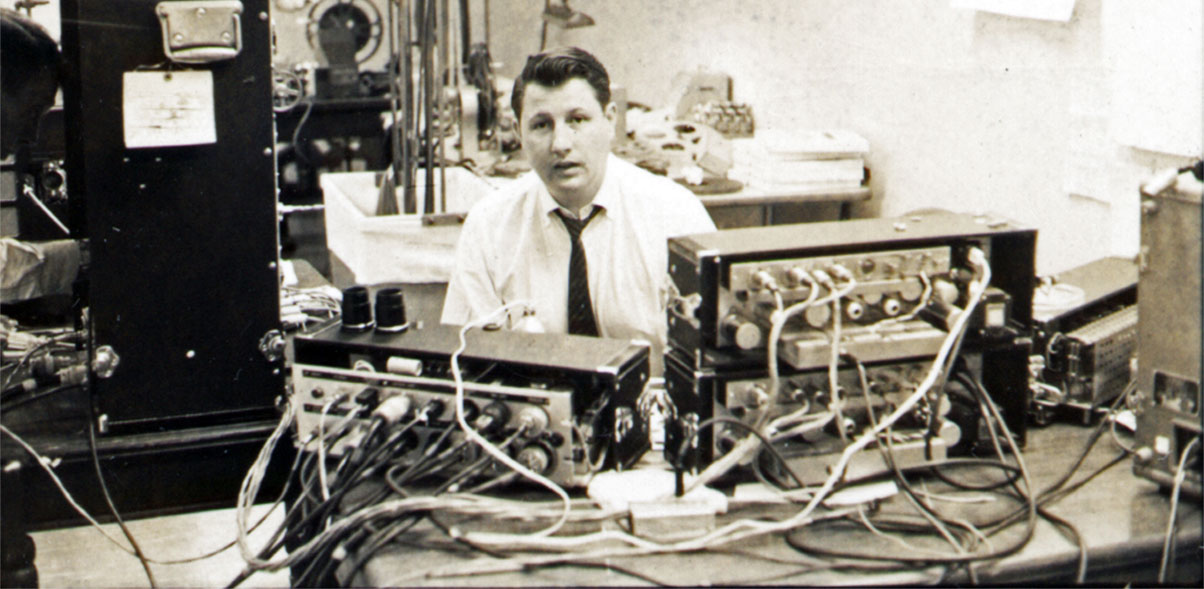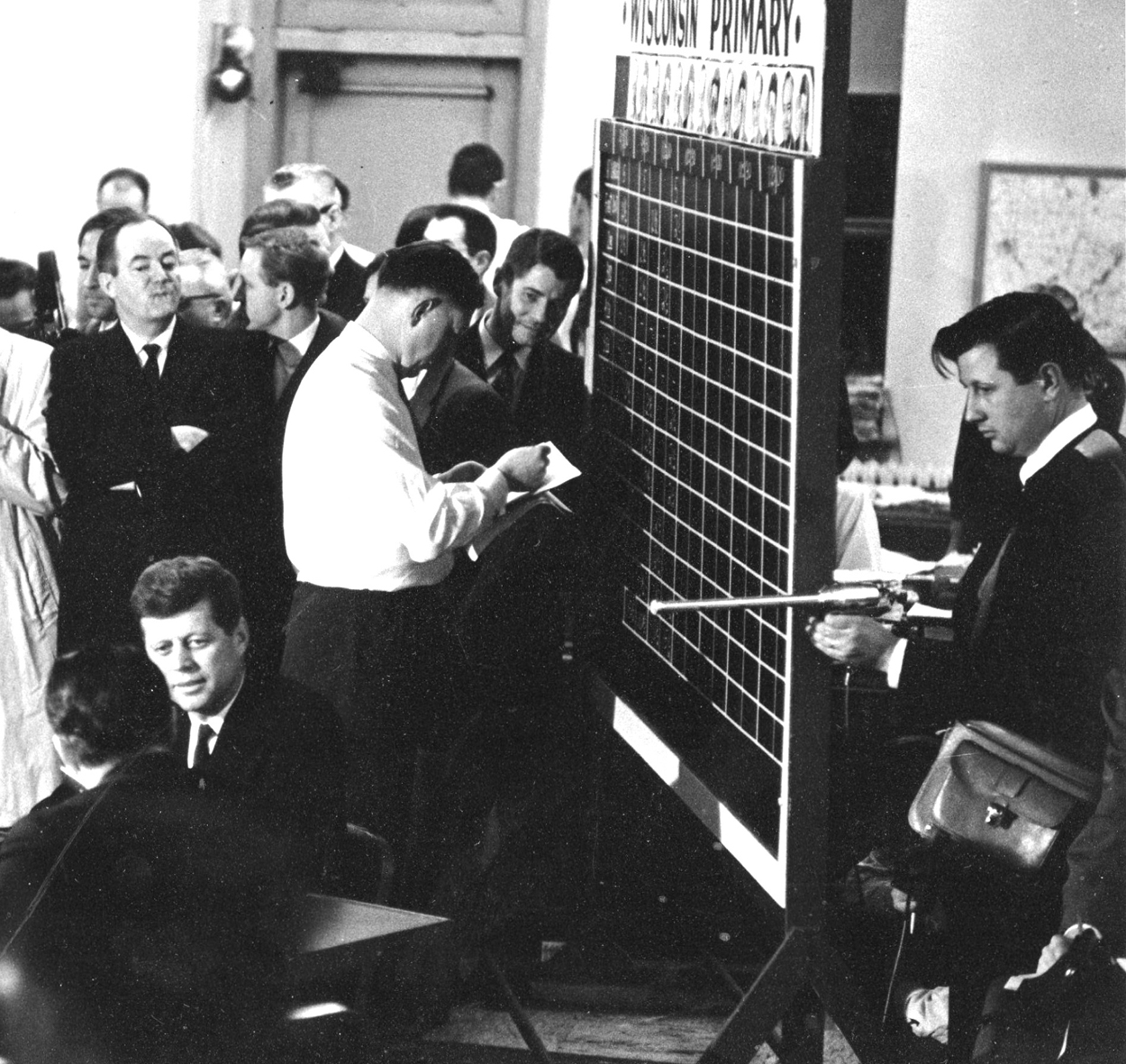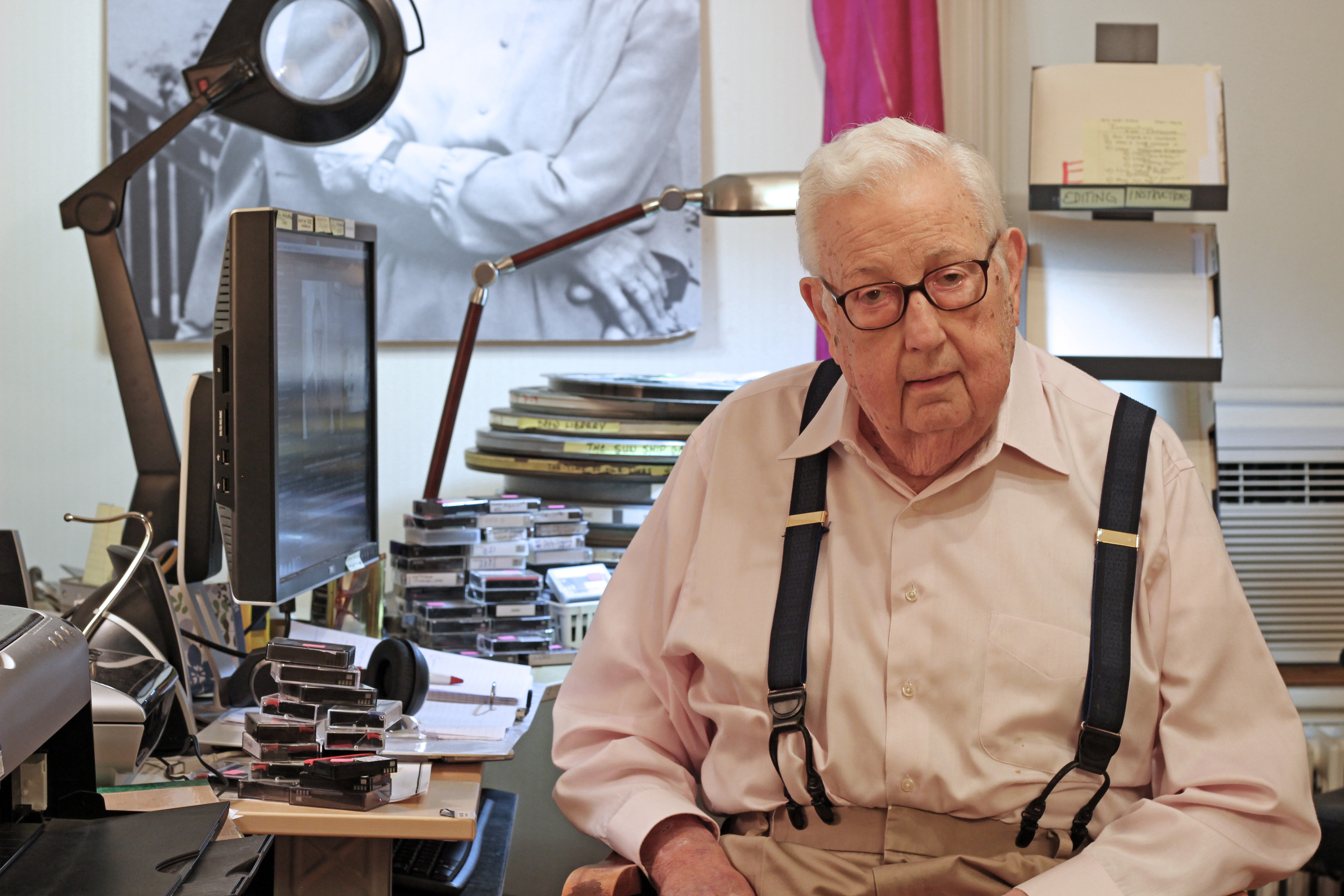(The following are a series of short essays that attempt to describe Drew’s ideas as they developed, drawing on his notes from the time and his later writings, as well as speeches and interviews with Drew and his collaborators, and the films themselves. These essays will be in a continual process of evolution, refined and expanded as we work through Drew’s voluminous archive of papers and other artifacts. If you have something to share that would improve this narrative, please email films@drewassociates.com)
Robert Drew’s vision of reality filmmaking – first sparked in 1951 when he was a Life magazine correspondent – led a revolution that came to be regarded as American cinéma vérité (or direct cinema).
In a vérité film, real-life drama unfolds before the lens and is edited into a documentary that follows a visual logic. This was a radical departure from what had come before. Documentaries of the day followed what Drew derided as “lecture logic.” They were dull. Most all relied heavily on on-camera correspondents reading scripts, telling viewers what they were watching and what they should think about what they were watching. “Real life never made it onto the screen,” he lamented.
While attempting to put his ideas into action in an early filmmaking venture with Life Magazine photographer Allan Grant titled “Key Picture” (1954), Drew encountered a thicket of technical hurdles. Cameras were so heavy they needed tripods. Audio recording equipment was so bulky and voluminous it couldn’t be moved. Crews often consisted of eight people, overwhelming whatever was happening in front of the lens.
Before he could capture real life as it happened, Drew needed cameras that were light enough to carry and could be synced with audio recorders. He also needed like-minded collaborators who shared his determination to capture the aliveness and surprise of real situations and real people. He wanted to work with others who were driven to make films with small teams that created a direct connection between their films’ subjects and their viewers.
Drew took a year off from his job at Life Magazine to attend Harvard University on a Nieman fellowship and work through the problems. He studied the modern novel and watched a lot of television, searching for the connections that would allow him to capture film subjects as they moved through their lives in an attempt to convey the truth of their experiences.
He found his filmmaking soulmate in Richard Leacock, already an accomplished filmmaker by this time, who had been making films since he was a boy. Drew was entranced with a television program Leacock had shot that aired on Omnibus called “Toby and the Tall Corn” (1954), which gave one the sense of being with the participants as they set up a traveling tent show. Drew and Leacock teamed up to make short films for Time-Life that would promote Life Magazine stories while also giving them experience working together to make films their way. They made films on a college football game, the B-52 bomber, on a scientist who wanted to see if there was water on Mars, on a bullfight. They brought on other filmmakers, including D.A. Pennebaker, who had a background in engineering and a love of candid filming. Pennebaker introduced Albert Maysles to the group and a dream team was formed.
The filmmakers began to envision what they would need equipment-wise to make films their way. Drew transferred from Life Magazine to the Time-Life Broadcast division, which had a capital expense budget to cover the costs of the equipment. Life had a substantial budget and Drew began ordering what was needed. He often laughed as he recalled the first time a vendor asked for a purchase order number. He had no idea what that was, so he gave the guy his extension number at Life — 333. Forevermore, whenever asked for a purchase order number, that was the answer he gave.
Drew commissioned a photo equipment genius in New York, Mitch Bogdanowicz, to re-make a film camera to be portable and quiet. He asked Loren Ryder in Hollywood to develop an editing system that could handle 16mm film with synchronized sound. In notes to his book, Robert Drew and the Development of Cinéma Vérité in America, P.J. O’Connell writes, “An important feature of this equipment development was that almost all the Drew-Leacock-Pennebaker equipment was based on pre-existing equipment — Auricon cameras, Uher and Perfectone recorders, and the watches. By adapting equipment, rather than designing it, Drew and his associates had cut months, probably years, off the development process and saved significant sums of money.”
Whatever the method of obtaining it, with sync sound equipment in their hands, filmmakers could for the first time follow characters as they moved through their lives, capturing their subjects in an attempt to convey the truth of their experiences. A whole new world opened up, a world where vérité was possible.



